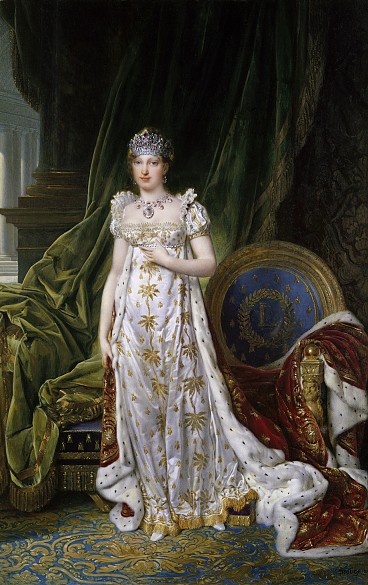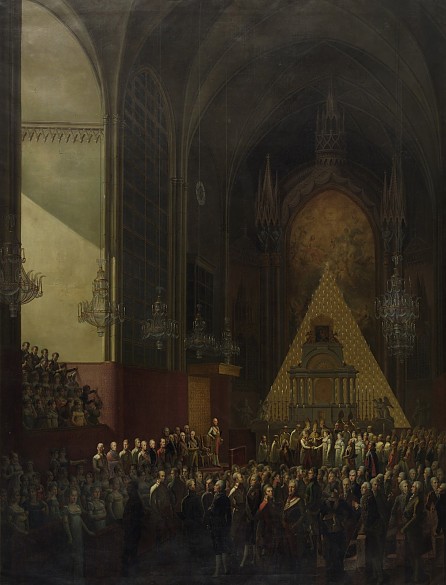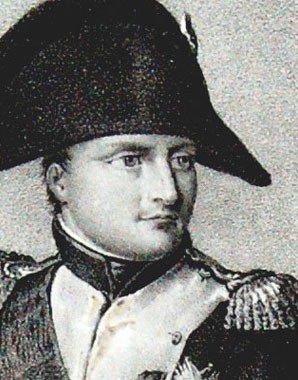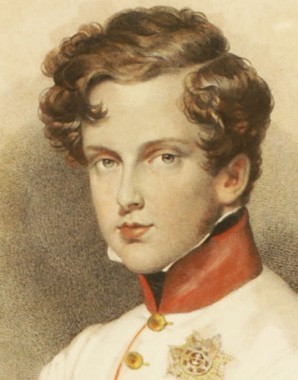Marie Louise as Empress of the French
On her marriage in 1810 Marie Louise’s life changed radically. The rather mousy Habsburg princess now became the First Lady of Europe. At first fearful of the fate she had been consigned to, Marie Louise quickly resigned herself and soon began to enjoy her new role.
The wedding took place by proxy in Vienna, the role of the bridegroom being taken by one of Napoleon’s brothers. Afterwards Marie Louise travelled to France to join her new husband. On 16 March 1809 the bride was officially handed over to the French delegation at the frontier of the Habsburg Empire, in Sankt Peter am Hart near Braunau am Inn. The ceremony took place in a specially erected pavilion consisting of three festively decorated rooms. Adjoining the central room, where the bride was handed over, was a room on the east side for the Austrian delegation and one on the west side for the French legation.
Napoleon made a concerted effort to win his bride over, sending Marie Louise gallant letters and gifts while she was still on her way to Paris. He also travelled to meet her so that they would have an opportunity to become acquainted before the official entry into the French capital. Marie Louise soon laid aside her hostile feelings, taking to her new husband, and the marriage developed favourably.
Nine months later a child was born. The birth was so difficult that in order to spare the mother’s life it was decided to risk the child’s death. The seemingly stillborn infant was heedlessly laid to one side, but all present were greatly surprised when it suddenly emitted a lusty cry. Napoleon now had his longed-for son and heir, who was given the names Napoleon Franz and proclaimed King of Rome on the day of his birth, a portentous title that reveals the scope of Napoleon’s ambitions. Marie Louise was heaped with honours by Napoleon and quickly settled into her new role as empress.
Marie Louise had little interest or involvement in politics, and although as empress she was officially entrusted with the regency when Napoleon was absent, she left the actual decision-making to the Council of State.















